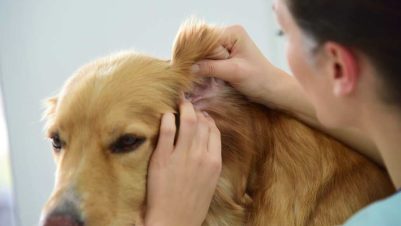AUTUMN. Season of mists and mellow fruitfulness – and freshers!
The two most exciting days of the year for me, certainly as far as my teaching duties in Cambridge are concerned, are the first day of the autumn term and last day of the summer term.
Saying hello to new vet students and then waving them goodbye six years later as we send them out into the real world are the whole reason I put up with the hassles of university life.
If, like me, they’ve wanted to be a vet since they were six, here is the first concrete step to that dream. And I can just about remember the strange mixture of excitement and terror 32 years ago when I started at St John’s here in Cambridge.
Excitement at starting after all the stress of A levels and, for me at least and a fair few of our current students too, a gap year away from learning anything at all. But coupled with that excitement came the terror of not knowing what was expected, wondering if after a gap year I had forgotten how to learn anything.
That’s commonly a concern for students thinking of whether to take a gap year or plunge straight into the course. Interestingly, our senior tutor at St John’s has done some work on looking at students who come straight from their A levels and those who have a gap year.
He’s a mathematician and the complex analysis he’s done, taking all the variables into account, has shown that the students who have had a gap year away certainly don’t do any worse academically; indeed they seem to do better. That even applies to the mathematicians for whom a gap year has always been thought of as a definite no-no.
And whatever their academic grades, those students now a year more mature certainly have a different attitude of how important “having a life” is. Let’s face it, for a whole year they’ve had “a life” 100% of the time! It’s so important over their five or six years to be able to turn away from the academic side of university life and have other aims and interests, be they sport or music or drama.
It is even more important when they graduate not to be fixated on work and work alone. I wonder if that’s one of the reasons we have such a high suicide rate in the profession.
Lots of others of course: loneliness, stress, access to the relevant drugs. But if they started off on the right foot by seeing a different side to life, maybe that would help: I’d certainly recommend a gap year to anyone who asked me.
But having said all of that, at the start of university life it can be more of a struggle focusing on the academic side of things than avoiding it.
My eldest son has just started university after his gap year. He’s at the beginning of an earth sciences degree course but it seems from what he tells me of freshers’ week that he’s started a triple honours degree in drama, trampolining and drinking, with the first few days concentrating on the latter of those three subjects!
I don’t remember a start like that, but then I wasn’t in the rugby club who even then seemed to spend most evenings in the college bar! Things always even themselves out though and after a further week I got a text asking for a considerable sum for textbooks. Such a lifeline will just give him more drinking money, won’t it, but he knows the way round his dad.
If he had asked me for a contribution towards his bar tab, I’d for sure have turned him down, but he knows I’m unlikely to refuse him money for books.
Our new vets at St John’s, of course, are a far sterner crew, all focused on the task in hand: keen to start their dog dissection and know just which books are the best to buy. Even keener to get their green boiler suits and start their pig handling class.
Things have changed at Cambridge
For those of you who think that the Cambridge course is devoid of anything practical and useful, things have certainly changed.
Thirty years ago the only animals we saw in the first year all had their legs in the air as we explored their formolinised insides. But these days, within the first week of starting the students get to learn handling skills in pigs, soon to be followed by cows and sheep, horses, oh and yes, dogs and cats too!
The students are mustard keen to start even if their boots will smell of pig excrement for weeks to come. Oh the innocence of youth! And of course if you asked them what their long-term plans are, there is only one answer: to be a vet of course.
What a ridiculous question to ask a new vet student. What on earth else will they have applied for a veterinary degree to do? Am I to suggest in week one that after qualifying they might need to go into a job in biological sciences or maybe science writing or perhaps Tesco shelf-stacking?
If they wanted to go into a non-veterinary career they would be doing another degree, wouldn’t they? And yet with the number of veterinary students we will produce in five or six years’ time, in all likelihood way outstripping the number of new jobs they will find awaiting them, that’s what the Royal College tells us to emphasise isn’t it – what a good degree the vet one is to do other jobs!
I guess shelf-stacking would mean you would never have to pay back your grant, but that seems rather a harsh lesson for freshers’ week, doesn’t it? Well, I’m being a bit harsh I guess and probably a good deal more cynical than I should be, but this is an issue we must all be concerned about.
With any luck, this year’s freshers will jump into a job within a few weeks just as this year’s final years from St John’s did, but something deep down makes me wonder. Here’s hoping!







